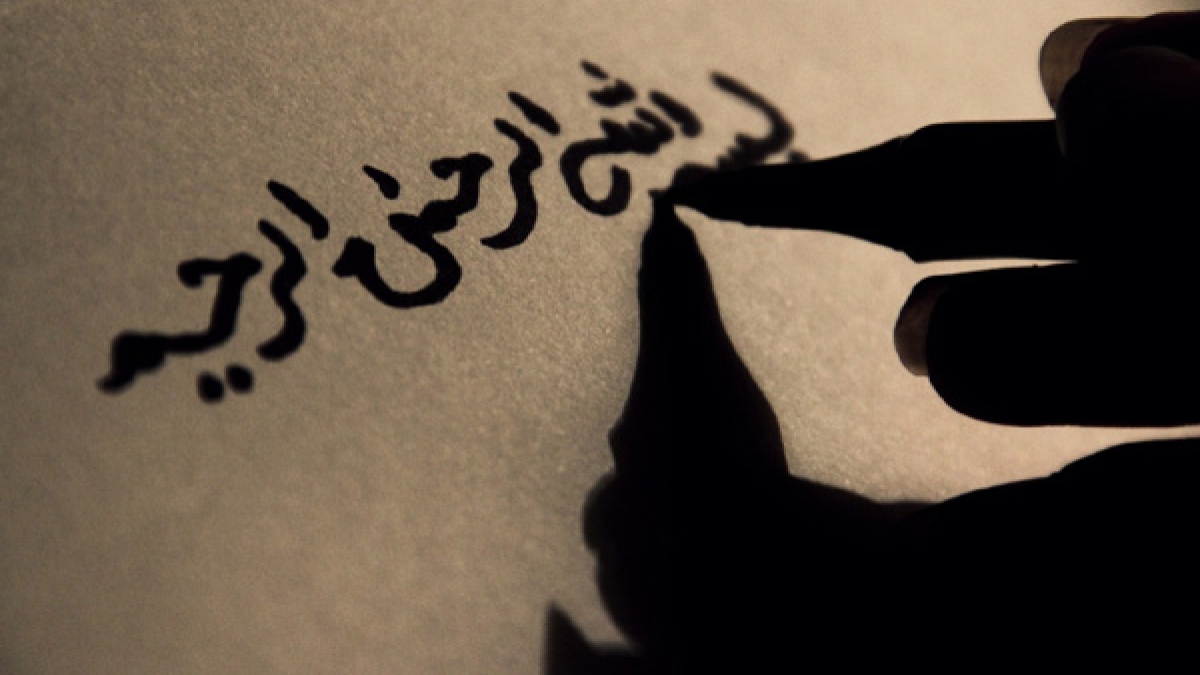It is Only a Sunnah

Often, when Sunnah of the Holy Prophet Sallallaahu alayhi wasallam is mentioned we hear the remark, "it is only a Sunnah", implying as if Sunnah is a mere matter of choice, not a duty or obligation, recommended, but not required. The response, for most part, is a result of the lack of understanding of the importance and the place of the Sunnah in Islam and in a Muslim's life.
What is Sunnah? Allah sent his last Prophet and Messenger Mohammad Sallallaahu alayhi wasallam to teach and guide humanity how to conduct their individual and collective affairs and live their lives in a manner pleasing to their Creator. In this regard, the virtuous acts and deeds taught by the Prophet, through his words and conduct, are called Sunnah. They range in their scope from the manner of drinking water to burial of the dead to solemnizing the marriage to regulation of trade practices, etc. Even a simple task of drinking water becomes an act of worship if the intention underlying it is to comply with the Sunnah of the Holy Prophet. On the other hand, intentionally and habitually disregarding the Sunnah invites anger of Allah and His Prophet. The Holy Prophet is reported to said, "Whoever turns away from my Sunnah is not from me", meaning he is not my follower.
How imperative is it to obey the Sunnah of the Prophet Sallallahu Alaihe Wa Sallam? The imperative significance of the Sunnah is evident from the fact that Allah has not linked the success and salvation of humans with His obedience alone but also conditioned it upon the obedience to His Prophet. That is, Allah Almighty has enjoined on us obedience to His Messenger, just as He has enjoined His own obedience. In the Quran Allah says, "And obey Allah and the Messenger that you may obtain mercy. (3:132). And at another place He warns, "...and whoso disobeys Allah and His Messenger, he is indeed on a clearly wrong path (33:36). To obey the Messenger means obey his Sunnah, what he has enjoined and what he has forbidden.
In the Islamic system of beliefs, Allah Subhanahu alone has the right to declare what is permitted and what is forbidden. He does so through the Quran and through His Prophet. Allah vested in His Prophet the authority of a lawgiver. The Quran says, "...(Prophet) enjoins them good and forbids them evil, and makes lawful to them the good things and makes unlawful to them impure things, and removes from them their burden and the shackles which were upon them..." (7:157). Therefore, what the Holy Prophet enjoins or forbids is from Allah. ("He does not speak from his desire; it is nothing except revelation revealed to him" (53:3-53:4). Another verse that tells us about Prophet's authority as a lawgiver, "...So take what the messenger assigns to you and abstain from that which forbids you ..." (59:7). This verse is not limited to the division of the war booties as anti hadith groups claim, it is rather all encompassing and general in its proclamation.
The other dimension of the Sunnah of the Prophet is that it is a tangible expression of love for Allah, and the best way to gain Allah's love and forgiveness. Quran tells Prophet Sallallaahu alayhi wasallam to say to believers, "If you do love Allah, Follow me: Allah will love you and forgive you your sins ..." (3:31). This verse makes it plain that without adhering to the dos and don'ts of the Sunnah, no triumph in this world or the next can be achieved.
The clear imperative to follow Prophet Mohammad's rulings and decisions can also be seen unambiguously expressed in this verse "But no, by your Lord, they can have no faith, until they make you (O' Muhammad) judge in all disputes between them, and find in themselves no resistance against your decisions, and accept them with full submission" (4:65). This verse clearly illustrates the supremacy of the Holy Prophet's decisions and judgment governing all departments of life - religious, social, economic, political and cultural, etc. Here the Quran establishes Sunnah - Prophet's decision and legal judgments - as irrevocable, not to be challenged or reinterpreted and must be accepted with full submission. The emphasis on the Sunnah is to the point that if one knowingly denies the decrees and judgments of the Holy Prophet, he jeopardizes his faith.
The obligation to judge all matters in the light of the Quran and the Sunnah is also recognized from the famous hadith of Muaz bin Jabal radiyallaahu anhu. When the Holy Prophet appointed him as a Judge in Yemen, he enquired him, "What will you judge by when you decide a case?" Muaz bin Jabal said, "By the Book of Allah." The Prophet further asked, "If you don't find the answer in the Book of Allah, what will you do?" Muaz bin Jabal replied, "I will look into the Sunnah of the Allah's Prophet." The answer of Muaz bin Jabal very much pleased Rasulallah Sallallaahu alayhi wasallam. The hadith further confirms that the Sunnah, after Quran, is a definite and absolute part of the Muslim constitution.
The Prophet Sallallaahu alayhi wasallam was created as an "exalted standard of character" (68:4) and the best exemplar for the human race. In enjoining the believers to pattern their lives after the perfect example of the Prophet's life, the Quran says, "Certainly, there is an excellent example for you in the Messenger of Allah, for him who looks forward to Allah and the Last Day, and remembers Allah much (33:21). The Holy Prophet said about himself, "Allah has sent me as an apostle so that I may demonstrate perfection of character, refinement of manners and loftiness of behavior and conduct." The believers have been exhorted to follow the Prophet Sallallaahu alayhi wasallam not only in the details of complex matters of their collective life, but also in the small details of their daily life. For example, matters of eating, drinking, dressing and sleeping, and those regarding which the Prophet gave specific guidance.
Today, Muslims overwhelmed by the West and its civilization and raised on secular education have developed inferiority complex about their religious and cultural heritage. Though they believe that the system of guidance, the Qur'an and Sunnah, is true, yet great many of them have abandoned Islamic values and ideals in favor of western standards and practices. Here it would be good to remember what the Holy Prophet said about imitating the non-believers. The Prophet of Allah said, "Whoever imitates a people is one of them."
Since the Sunnah is an integral part of Muslim faith, its negligence and abandonment would diminish the faith of a believer in the same measure. It is for this reason that the Holy Prophet Sallallaahu alayhi wasallam has promised a great recompense for the revitalization of an abandoned Sunnah. He said, "Whoever revives a Sunnah from my Sunnah that has been abandoned after me, then he will have an equal reward of all people who acts upon it, without decreasing from their reward in any way."
The Fuqaha (jurists) and muhaddithin (traditionists) may debate over the binding and non-binding status of Sunnah. A common believer whose eyes are on the Akhira will not fret over the legalities, but follow the Sunnah with same devotion and conviction in all matters, big and small. I am reminded of a young British man who after embracing Islam started to grow beard. A fellow Muslim, perhaps a modernist, said to him, "keeping beard is not an essential requirement." The comment evoked a devotional response from the new brother, "Keeping beard is one of the clear commands of the Prophet and who am I to judge the essentiality of the Prophet's orders." The young new Muslim gave us a lesson in abiding in the Prophet's Sunnah without questioning and arguing about the legalities of it.
Beware those who neglect and abandon the Sunnah and say, "It is only a Sunnah": The Quran says, "....So, those who violate his (messenger's) order must beware, lest they are visited by a trial or they are visited by a painful punishment" (24:63).
It is not just Sunnah, it is the way of life prescribed by none other than the Allah through the revelation to His Prophet.
******
Abdul-Majid Jaffry is a retired aerospace engineer and a freelance columnist.
Related Suggestions
This is an excellent article and very well written.
Peace be upon all those who follow the sunnah of the Prophet peace be upon him.
If one of these commentators doubts whether a hadith is authentic, then he or she should bring proof of these claims, instead of rambling about.
May Allah give great reward to me and to all those who follow the sunnah of Rasool Allah sallah Allahu alayhi wa sallam and also reward to those who write excellent articles like this.
Think logically - Now you can shave yourself within a minute. But those time, they have to go to the barbar and stand in line. Even 10000 companions have take their turns to be shaven daily by the barbars, who may take 10 to 15 min, if they have sharp knives.Since this was not practical to waste time, they let their beard grow.
You will get reward, whether you are sabian, christian,or jew,as long as you believe in Allah, the Last Day and do good deeds ( Quran: sura 2).
Allah has sent us down with enmity in our hearts and we will attain salvation, if we overcome the built in enmity and do good deeds with a belief in one God and the Last Day.
We respect our Prophet (pbu) and we will obey to the Messenger,if he is alive.
Obey Allah and the Messenger - is the verse for those who lived during life of Prophet and Allah is all Knowing.
There are some verses in Quran, which is revealed related to that time.
If Hadith, we have now, was written 150 years after Prophet's( pbu) death. That is about 5 to 7 generations later. Buhari collected 300000 and he felt only 6 to 7000 to be reliable. If you combine the repetition, we can narrow these down to 2000 hadiths only. Even few of them are not considered by some knowledgables as not reliable.
We should have 100% authentic hadith collections like Quran to believe and obey.
If people wants have beard, and simulate some actions, and if they feel it is Sunnah, they have their freedom to follow but to say you have to follow this Sunnah to attain salvation, -- is not acceptable. I disagree.
I agree also with the brother's opinion from Canada.( as Neutral)
http://www.central-mosque.com/fiqh/asunnah1.htm
We define ourselves as the Prophet's (saw) ummah yet many of us live in ignorance and abandon his way. We shouldn't listen to those who call it a bygone medieval tradition. Following the Holy Prophet's Sunnah is our way of life.





























